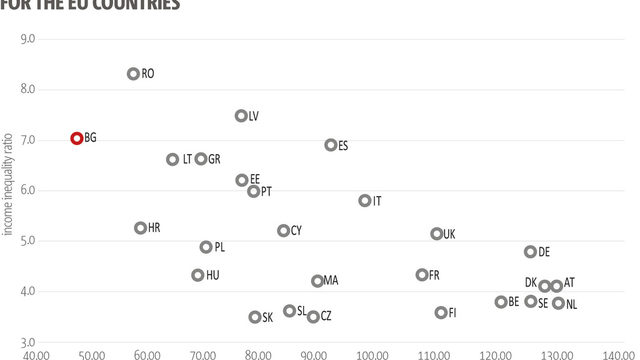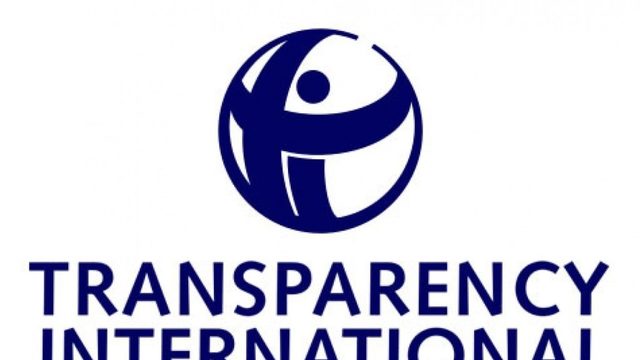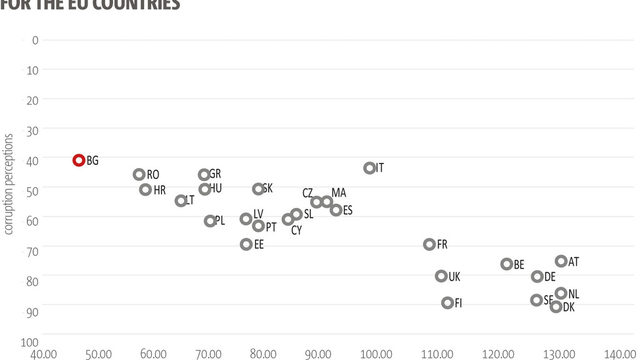There are three facts that are dead certain about Bulgaria. It is the poorest country in the European Union, even measured by the Purchasing Power Standard (which reflects the different standards of living among the countries). Its citizens perceive corruption as widespread; in fact Bulgaria scores worst in the Transparency International corruption perception index among the EU member states. And finally, it is one of the countries with the highest income inequality in the EU. These three facts are not only interesting per se; they raise questions like "Which is the leading source of the slow economic growth - inequality or corruption?" They explain, to a large extent, the political upheaval in Bulgaria in recent years.
Despite growing GDP per capita, income inequality in Bulgaria continues to increase. In 2012, the income of the richest 20% of the population was six times that of the poorest 20%. This ratio increased to more than seven times in 2015. It is true that income inequality is on the rise in the EU as a whole, partly because of the economic recovery which tends to reward the richer more than the poorer. But the rise in Bulgaria is significantly faster. Bulgaria also has one of the highest ratios of income inequality after taxes and social transfers, which suggests that they do not substantially alleviate inequalities. This is probably one of the major causes of the political alienation the traditional parties in Bulgaria face and their gradual slide to more and more populism in response to popular anguish.
" data-author="" data-source="" data-phototype="1" data-position="1" alt="" class="img-fluid" />
However, the issue is not addressed. This might be the result of stiff social structures and ineffective state apparatus that do not allow for rapid changes. Or lack of public funds. But another explanation is corruption. To resolve the inequality problem the authorities need to tackle head-on the abuse of public funds, which is the main fuel for corruption in Bulgaria and also stands in the way of increasing social transfers and free entrepreneurship. Yet, this is hardly happening which is reflected in the Bulgaria's worsening score in the Transparency International index. It could be argued that the rise in inequality breeds the perception of corruption, because people tend to explain their worsening material status with injustice, but the example of Romania (polls usually find that Bulgarians and Romanians have very similar values and attitudes) disproves such a hypothesis. Inequality in Romania is actually higher but the perception of corruption is subsiding, possibly due to the successful performance of Romania's anti-graft authority DNA.

In short, the Bulgarian political class is whining a lot about populism but has no intention of confronting its main causes.

There are three facts that are dead certain about Bulgaria. It is the poorest country in the European Union, even measured by the Purchasing Power Standard (which reflects the different standards of living among the countries). Its citizens perceive corruption as widespread; in fact Bulgaria scores worst in the Transparency International corruption perception index among the EU member states. And finally, it is one of the countries with the highest income inequality in the EU. These three facts are not only interesting per se; they raise questions like "Which is the leading source of the slow economic growth - inequality or corruption?" They explain, to a large extent, the political upheaval in Bulgaria in recent years.
Despite growing GDP per capita, income inequality in Bulgaria continues to increase. In 2012, the income of the richest 20% of the population was six times that of the poorest 20%. This ratio increased to more than seven times in 2015. It is true that income inequality is on the rise in the EU as a whole, partly because of the economic recovery which tends to reward the richer more than the poorer. But the rise in Bulgaria is significantly faster. Bulgaria also has one of the highest ratios of income inequality after taxes and social transfers, which suggests that they do not substantially alleviate inequalities. This is probably one of the major causes of the political alienation the traditional parties in Bulgaria face and their gradual slide to more and more populism in response to popular anguish.








![[[img:4147833]] [[img:4147834]]](https://kinsights.capital.bg/shimg/zx952y526_4147833.jpg)




